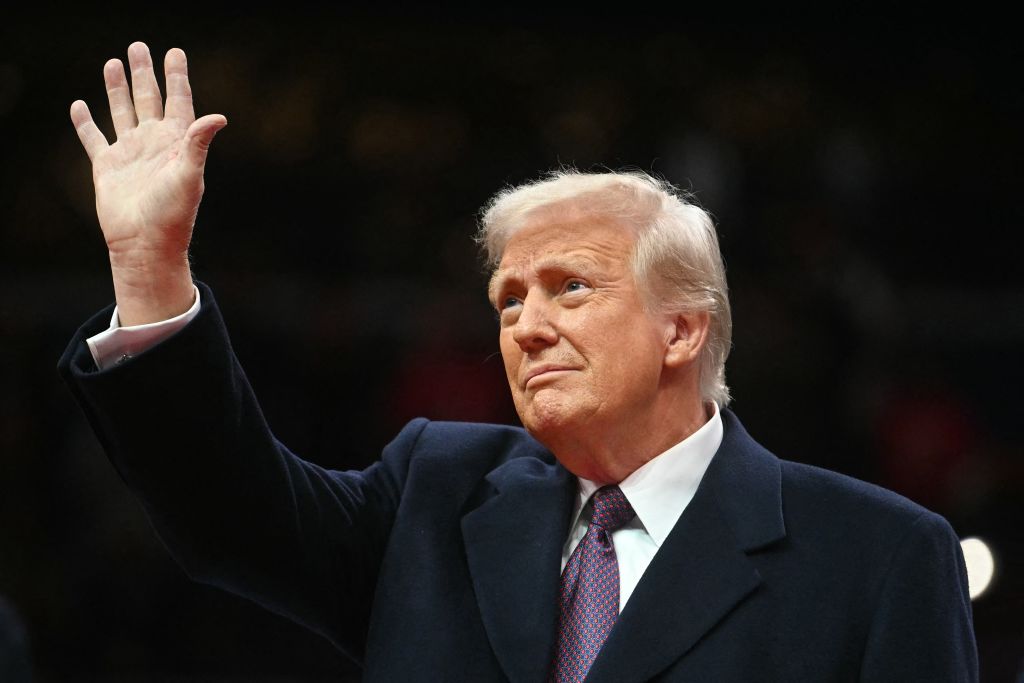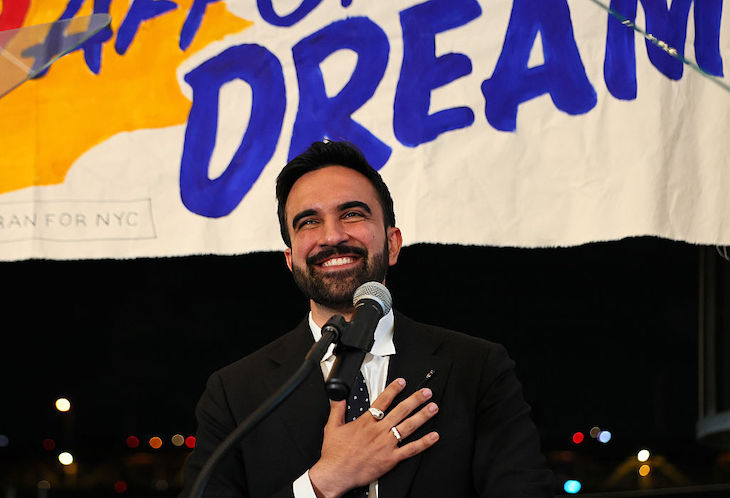The abiding question for the 47th President of the United States of America is whether he now, after running against everything that counts as orthodox in the way of politics, has suddenly become a politician. Donald Trump is the candidate from beyond the beltway, the man who speaks directly to the public. Yet the conjuring trick, rhetorically, for every successful candidate is the extent to which he can maintain outsider status after an emphatic victory. That was the conundrum of Trump’s second inaugural.
The inaugural speech in American political history is almost always the same, irrespective of party origin. It is a political ritual, the moment at which America enacts its transfer of power. The address is therefore usually at least in part self-referential; its main theme the democratic ritual itself. This takes us right back to the origins of the republic. In January 1801, Thomas Jefferson spoke of his hope that the fledgling democracy could overcome its weaknesses and survive. The defeated candidate – John Adams – had churlishly left Washington before the inauguration.
Every president since has said much the same. George H.W. Bush sought a ‘kinder, gentler nation’. Bill Clinton pledged to be a ‘repairer of the breach’. George W. Bush said ‘I want to change the tone of Washington’, and Barack Obama insisted ‘There is not a liberal America and a conservative America – there is the United States of America’. The first president to flout this tradition was Donald Trump in his first inaugural, which was a stump speech designed to identify the guilty parties in the betrayal of America.
There was some of that in the second inaugural too. Trump’s most comfortable idiom as a speaker is victimhood and he likes to depict an America that is besieged. But unlike presidents before him who have, at time of war, deplored the external threat to America, all of Trump’s enemies are within. ‘For many years,’ said the President, ‘a radical and corrupt establishment has extracted power and wealth from our citizens’. ‘My recent election’, he went on, ‘has a mandate to completely and totally reverse a horrible betrayal….’ The betrayal has been practiced by the woke warriors, the people who believe there are more than two genders. In these, the culture war passages of the speech, Trump laid a trap for the Democrats. ‘Concentrate on these issues, on which you are obsessed,’ he didn’t quite say, ‘and you will miss the things that people care most about, which is to say the economy and immigration’.
Which brings us to the promissory notes in the speech. Though Trump’s inaugural, like most that have gone before him, was light on policy detail, he did define the standard on which he should be judged. There should, after a short period of Trump, be less inflation and less immigration. These short passages – and they were passed over quickly – were the moments in the speech that Trump graduated into a trade that is new to him, the trade of politics. This is the danger for the President. If his voters start to judge him on whether he redeems his promises or not, then he has become a politician like any other.
The palpable danger of this rhetoric is probably why most of the speech was, in point of fact, standard inaugural boilerplate. There was the frontier rhetoric:
Americans pushed thousands of miles through a rugged land of untamed wilderness. They crossed deserts, scaled mountains, braved untold dangers, won the Wild West, ended slavery, rescued millions from tyranny, lifted billions from poverty, harnessed electricity, split the atom, launched mankind into the heavens and put the universe of human knowledge into the palm of the human hand.
That could easily have been John F. Kennedy.
There was the standard claim to exceptional American capacity: ‘I stand before you now as proof that you should never believe that something is impossible to do. In America, the impossible is what we do best.’ There was the standard claim that the best is yet to come: ‘After all we have been through together, we stand on the verge of the four greatest years in American history.’
There were hostages to fortune in this speech
There was also a message, which is the perennial standard of the inaugural down the ages, about unification. ‘Today is Martin Luther King Day,’ said Trump, rather surprisingly, ‘and in his honour… we will strive together to make his dream a reality. We will make his dream come true’. And then, even more starkly, ‘National unity is now returning to America. And confidence and pride is soaring like never before… We will not forget our country. We will not forget our constitution.’
We shall see whether President Trump can live up to that promise and if he can secure his hope that his legacy should be as a peacemaker and a unifier. They are big claims to make and the intriguing question, as he enters the time in which most second-term presidents are written off as a lame duck, whether the electorate begin to take Trump’s rhetorical gestures seriously. There were hostages to fortune in this speech. It was eight parts inaugural boilerplate to one part foolish partisanship, and one part a promise for the future, a promise that the golden age starts now. It’s a big claim and yet also a routine claim. It’s the sort of thing that politicians say.
Lionel Shriver, Freddy Gray and Kate Andrews discuss Trump’s inauguration on the latest Americano podcast:







Comments